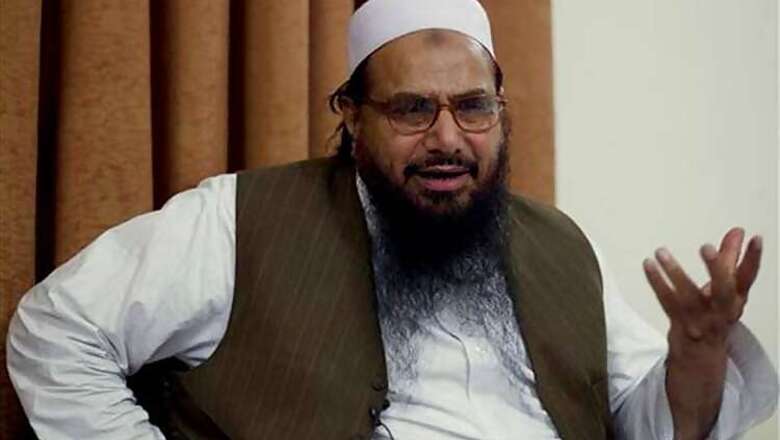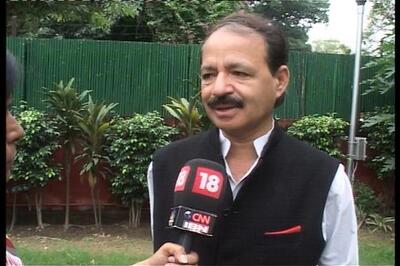
views
Pakistan government has informed its Parliament's upper house, the Senate, that it had put the Hafiz Saeed-led Jamaat-ud-Dawa under the 'suspected list' and it was monitoring the actions of this organisation. "The JuD has been put on the list of suspected organisations and appropriate action will be taken against it if it is found involved in any activity other than charity work," State Minister for Interior Baleeghur Rehman told senators.
The JuD was banned under UN resolution 1267 immediately after the dastardly 26/11 Mumbai terror attacks, but India has always contended that Pakistan has allowed it to flourish ostensibly for charity work. India has made several attempts in the past to force Pakistan to take action against Saeed and JuD but there have been no significant movement by the neighbouring country till now.
Pakistan's latest step is seen as a move to reach out to India before the National Security Advisor (NSA) level talks later in August. Relations between the two countries have turned cold once again especially after the arrest of Pakistani terrorist Mohammad Naved alias Usman Khan in Jammu and Kashmir.
Saeed's JuD is a front for Pakistani terror group Lashkar-e-Toiba which has launched several attacks on India in the last few years. Saeed is also the founder of Lashkar-e-Toiba and the mastermind of the 26/11 attacks in Mumbai which left 166 people dead.
Mohammad Naved alias Usman Khan was also trained and launched into India along with his accomplice Noman alias Momin with the aim of attacking security forces by the Lashkar leadership.
The duo targeted a Border Security Force convoy in Udhampur district of Jammu and Kashmir in which two troopers were killed while Noman was also gunned down. Naved was later overpowered by some villagers whom he had taken hostage and handed over to the Indian security forces.



















Comments
0 comment